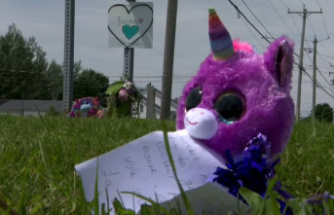In the basement of a white stone church here Tuesday night, Jeanette Vizguerra gathered up her three youngest children, slipped them into pajamas and asked herself perhaps the hardest question of her life.
Should she present herself to the immigration authorities Wednesday morning for a scheduled check-in, risking deportation?
Or should she stay in the church, one of the few places federal agents do not go, almost surely resigning herself to months or years trapped inside?
“Tonight, I have to think,” Vizguerra said. “Because I promised my children – and it was a promise – that it was going to be very difficult to remove me from this country. I have already fought so long to be here; now is not the time to give up.”
It has been a difficult week for Vizguerra, 45, one of millions of undocumented immigrants contending with an uncertain future in the Trump administration. After she was convicted several years ago of using fake documents, Vizguerra, who has spent 20 years working in the United States, was ordered out of the country. But she was granted three postponements of deportation, and in December, her lawyer, Hans Meyer, asked for a fourth.
Nothing happened. She was due for a regular check-in at the local office of Immigration and Customs Enforcement on Wednesday, and as the day crept closer, Vizguerra realized she would have to present herself without legal protection, leaving open the possibility of being whisked onto a plane and separated from her three U.S.-born children: Zury, 6, Roberto, 10, and Luna, 12.
Their care would fall to her husband, Salvador, 45, who works long hours as a driver for a tile company, and an older daughter, Tania Baez, 26, a preschool teacher with three children of her own. Unlike her younger siblings, Baez is not a citizen by birth but has a work permit under the Obama administration’s Deferred Action for Childhood Arrivals program, which President Donald Trump criticized during the campaign but has not moved to end.
The past week or so has thrust the family into a state of extended emergency. On Feb. 5, Vizguerra called a family meeting over dinner, banning electronics from the table to convey the seriousness of the matter. The family cats, Miranda and Zayra, meowed as she explained the plan.
If officials were to come to the home in the days before the meeting at the ICE office, no one should answer the door, she said. If they gained entry, Luna, a reedy middle schooler with braces, should use her phone to film the events. Roberto should open the emergency contact list in his phone and begin to call family friends and advocates. And Zury, the youngest, should go straight to her parents’ bedroom, close the door and stay there.
“I told them, ‘I know it’s going to be difficult for you’,” Vizguerra said. “ ‘I want you to be brave.’ ”
Three days later, the packing began, with the children stuffing their mother’s leggings, sweaters and shampoos into suitcases and boxes. Terrified by the prospect of familial separation, Vizguerra began to seriously contemplate taking refuge at the First Unitarian Society church in Denver, whose congregants previously gave sanctuary to another immigrant.
She reminded Luna which drawers belonged to which child and told her it would be her job to make sure her siblings dressed properly. She showed her where the extra soap, toothbrushes and toothpaste were kept.
Then Vizguerra stocked the refrigerator with microwave dinners, something even a 6-year-old could make.
Baez, the oldest daughter, has begun contemplating caring for three more children.
“I completely understand his side,” she said of Trump. “But he grew up entitled. He’s never lived in poverty. He’s never lived in fear.”
“I just think if he walked an immigrant’s life,” she added, “he’d change his mind.”
Vizguerra came to the United States from Mexico in 1997. She worked as a janitor and a union organizer, and she later owned a moving and cleaning business. In 2009, she was caught with fake identification that her lawyer said she had acquired in order to work. She pleaded guilty to a third-degree misdemeanor charge, setting off a chain of events that led to the deportation order. In the Denver area, she is a well-known advocate for immigration overhaul.
On Tuesday night, she slept in the church basement with her three youngest children, to avoid the risk of arrest at home. At that point, she still had not decided whether to show up at her ICE meeting.
“My intuition,” Vizguerra said, “tells me that if I go in, I’m not coming out.”
When the time came Wednesday, she decided not to go. Meyer, her lawyer, said he was told by ICE officials that Vizguerra’s request for a fourth postponement had been rejected.
Vizguerra’s supporters held a news conference outside the ICE office, and she telephoned in. With the phone pressed against a megaphone, she explained her decision.
“I thought I made the right decision by not coming in today,” she said in Spanish. “In my heart I knew that they would deny me a stay.”
As of 11 a.m. local time, she remained in the church. Under federal policy, immigration officers are supposed to avoid entering churches and other “sensitive locations,” unless they have advance approval from a supervisor or face “exigent circumstances” that require immediate action.
It was not immediately clear what ICE was going to do in response.
Our editors found this article on this site using Google and regenerated it for our readers.










